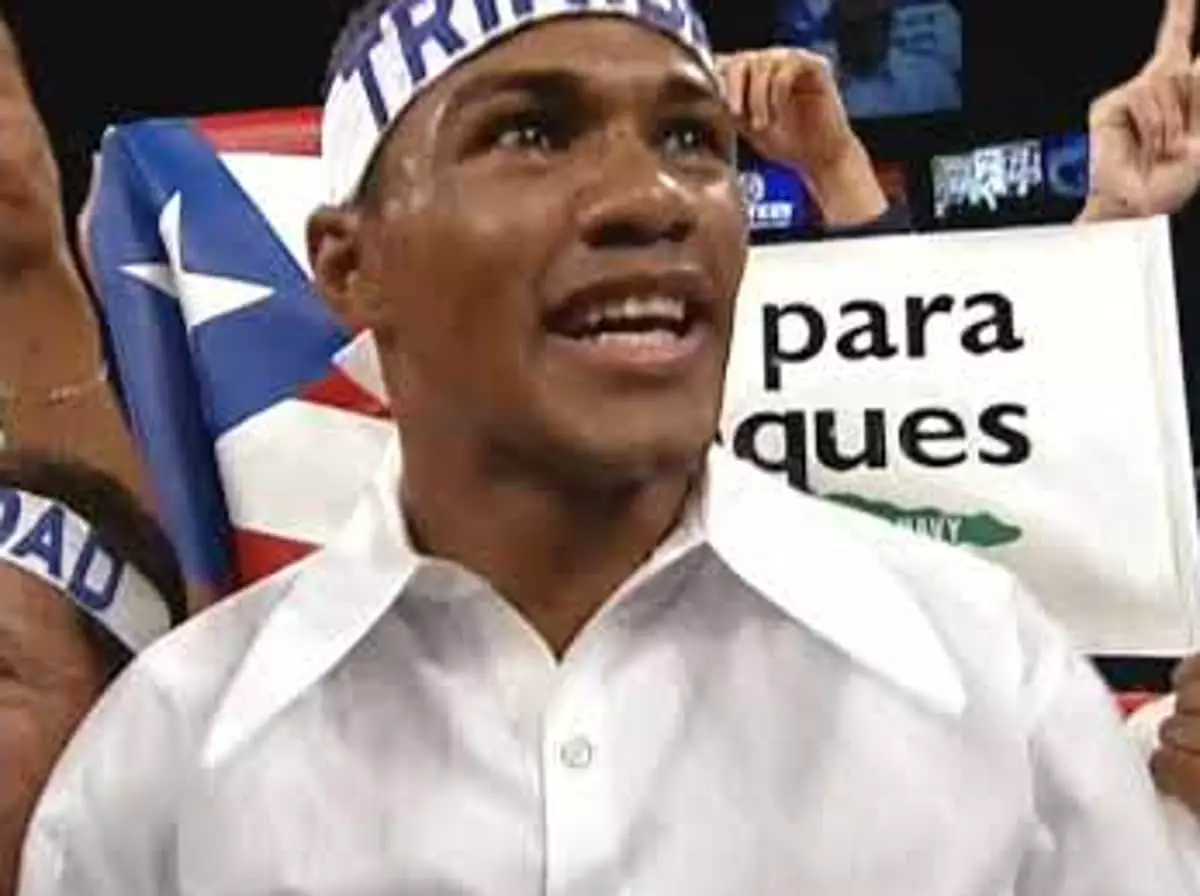The night of September 18, 1999, marked an important chapter in boxing history, as two of the sport’s true elite, Oscar De La Hoya and Felix Trinidad, faced off for the undisputed welterweight championship in Las Vegas. This highly anticipated matchup not only featured two undefeated champions but also set the stage for a riveting contest that would have fans divided for years to come. With the passage of time, the intricacies of the fight, the tactics employed, and the controversial scoring have left an indelible imprint on boxing lore.
Leading up to the bout, both De La Hoya and Trinidad held impressive records, boasting a combined total of 66 wins and only one collective loss. De La Hoya, known as “The Golden Boy,” entered the ring with a record of 31-0 and had successfully captured the WBC welterweight title. Conversely, the Puerto Rican powerhouse Trinidad was regarded as his equal, holding the IBF title with an unblemished record of 35-0. Fans and analysts were eager to witness if the clash of these differing boxing styles would culminate in a spectacular display of athletic prowess or devolve into a more methodical game of strategy.
However, expectations for an action-packed showdown quickly dissipated as the fight unfolded. Instead of the expected brawling reminiscent of legendary bouts like Hagler vs. Hearns, viewers were treated to a calculated, tactical bout where both fighters exhibited patience and caution. De La Hoya initiated the fight with a strong boxing display, accumulating rounds with his sharp jabs and fast footwork, putting Trinidad on the back foot early in the contest.
Through the first nine rounds, De La Hoya demonstrated a boxing clinic, using his reach and speed effectively to earn a substantial lead on the scorecards. Critics note that he could conceivably have claimed every round, tactically dismantling Trinidad’s efforts. However, the judges saw a closer fight, with two of them favoring De La Hoya by narrow margins while one judge had the fight even at 86-86. The discrepancy between public perception and official scoring became glaringly apparent as De La Hoya’s supporters adorned him with accolades for his skill.
An unexpected shift occurred during the championship rounds. Instead of maintaining his momentum, De La Hoya opted to retreat and play defensively, seemingly content to coast to a decision victory. This strategy ultimately handed the initiative to Trinidad, who seized the opportunity with fervor, making a dramatic surge in the final three rounds that surprised many observers.
Critics would later remark on De La Hoya’s choice to prioritize safety over engagement amidst concerns of fatigue. The decision to “run” from a ferocious opponent like Trinidad during critical rounds has fueled much debate in the boxing community. Did De La Hoya misjudge the importance of asserting himself in the face of pressure, or was his strategy a legitimate means of preserving his lead?
As the fight concluded, both fighters left the ring under a cloud of uncertainty. This was not solely a matter of physical fatigue; it morphed into a heated discourse on fairness, judgement, and the subjective nature of boxing. The majority decision, awarded to Trinidad with scores of 115-113, 115-114, and 114-114, created a firestorm of controversy. Mike Tyson voiced the frustration felt by many fans when he declared the outcome a “stink,” illustrating the widespread belief that De La Hoya had been unjustly deprived of his rightful victory.
The aftermath of the confrontation was marked by a mixture of disappointment and criticism directed at De La Hoya, with many in the media proclaiming that he squandered a golden opportunity. This clash, while not reaching the levels of infamy attributed to more famous controversial fights, has nonetheless etched itself into the annals of boxing debates.
Over two decades later, the argument concerning who truly won the fight remains unresolved. The Trinidad vs. De La Hoya bout serves as a reminder of the subjective nature of sports judgments and likely will continue to provoke discussions among boxing enthusiasts. Whether viewed as a lesson in defensive boxing or a missed opportunity for glory, the clash between the two champions represents a fascinating case study in the sport’s rich history.
As spectators reflect on the intricacies and the fallout of this fight, they cannot help but wonder: who really emerged victorious on that fateful night? The lingering question echoes, inviting not only recollection of the fight itself but also implications for future generations of boxing.

